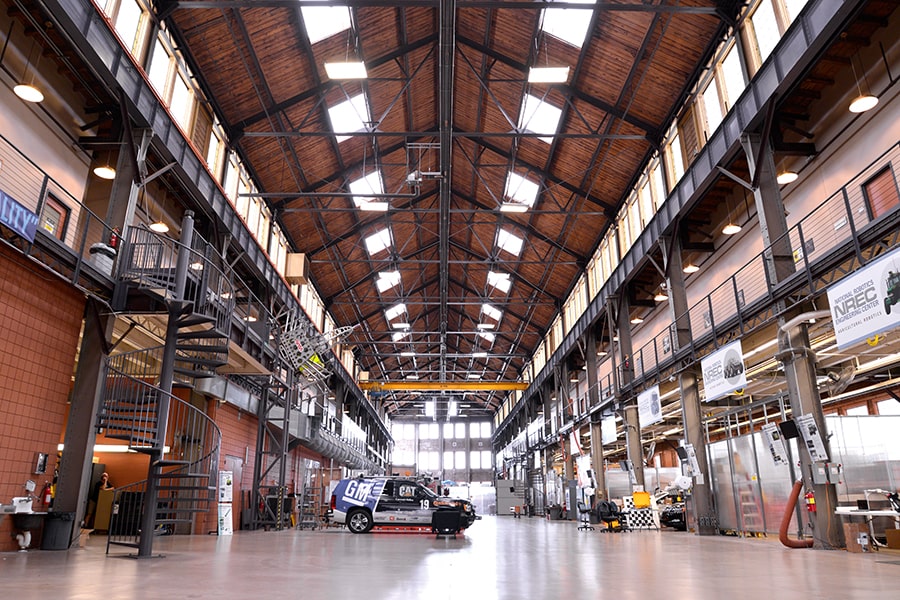A Pittsburgh venture studio with a goal to commercialize robotics and AI technology out of Carnegie Mellon University just raised capital to keep building its portfolio of startups.
Carnegie Foundry, which focuses on spinning out companies from CMU’s National Robotics Engineering Center, is fundraising for a $20 million Series A, with $10.3 million already closed. VP of Finance and Investment, Matt Wachter told Technical.ly the venture studio has already used the funding to create two robotics and AI-focused companies and is on track to create more.
“The future plan is to continue to scope the IP available [so] we can leverage it to form some of the best robotics and AI companies coming out of the region for the future,” Wachter said. “So we have a plan to do this numerous times over the next few years, and we’re continuing to raise capital to do so.”
The capital raised so far includes $5 million from Wisconsin-based vehicle and equipment manufacturer Oshkosh Corporation in 2021; $5 million from US Steel in 2022; and $300,000 from an accredited investor by way of the recently formed special purpose vehicle Carnegie Capital Partners in Q1 of this year, per Wachter.
The two new companies are called Freespace Robotics and VoxEQ, which are an automated warehousing company and a fintech company, respectively. While the venture studio’s leadership is pretty hands on with Freespace Robotics and act as its executives, Wachter said VoxEQ has scaled up quickly enough to have its own CEO, CTO and a full staff. (Freespace also secured an initial investor in NFI Ventures, the venture capital arm of one of North America’s largest third-party logistics companies, the VP said.)
While robotics and AI can be challenging to do in a capital-efficient way, Wachter feels Carnegie Foundry has seen been able to start the companies has to do with the talent in the Pittsburgh region, as well as the way the venture studio is set up.
“Because we’re a venture studio, we don’t have to carry very expensive staff on board,” Wachter said. “We don’t have to keep very expensive payrolls on our books and we can [very] efficiently utilize the capital we have and put it directly into development.”
Currently, Carnegie Foundry has a full-time staff of six and uses engineering teams that work for hire out of the National Robotics Engineering Center. The venture studio bases its activities out of Lawrenceville, where the National Robotics Engineering Center is located. As the org seeks to raise the full $20 million, the next steps are to continue discussions with accredited investors, family offices and institutional investors while the round remains open, Wachter said.
Due to its access to the city’s robotics hub combined with its cost-efficient model, he anticipates a year of continued growth for the venture studio.
“We’re very optimistic about this year, and especially moving into the second quarter of 2023,” Wachter said.
Atiya Irvin-Mitchell is a 2022-2024 corps member for Report for America, an initiative of The Groundtruth Project that pairs young journalists with local newsrooms. This position is supported by the Heinz Endowments.Before you go...
Please consider supporting Technical.ly to keep our independent journalism strong. Unlike most business-focused media outlets, we don’t have a paywall. Instead, we count on your personal and organizational support.
Join our growing Slack community
Join 5,000 tech professionals and entrepreneurs in our community Slack today!

The person charged in the UnitedHealthcare CEO shooting had a ton of tech connections

From rejection to innovation: How I built a tool to beat AI hiring algorithms at their own game

Where are the country’s most vibrant tech and startup communities?



